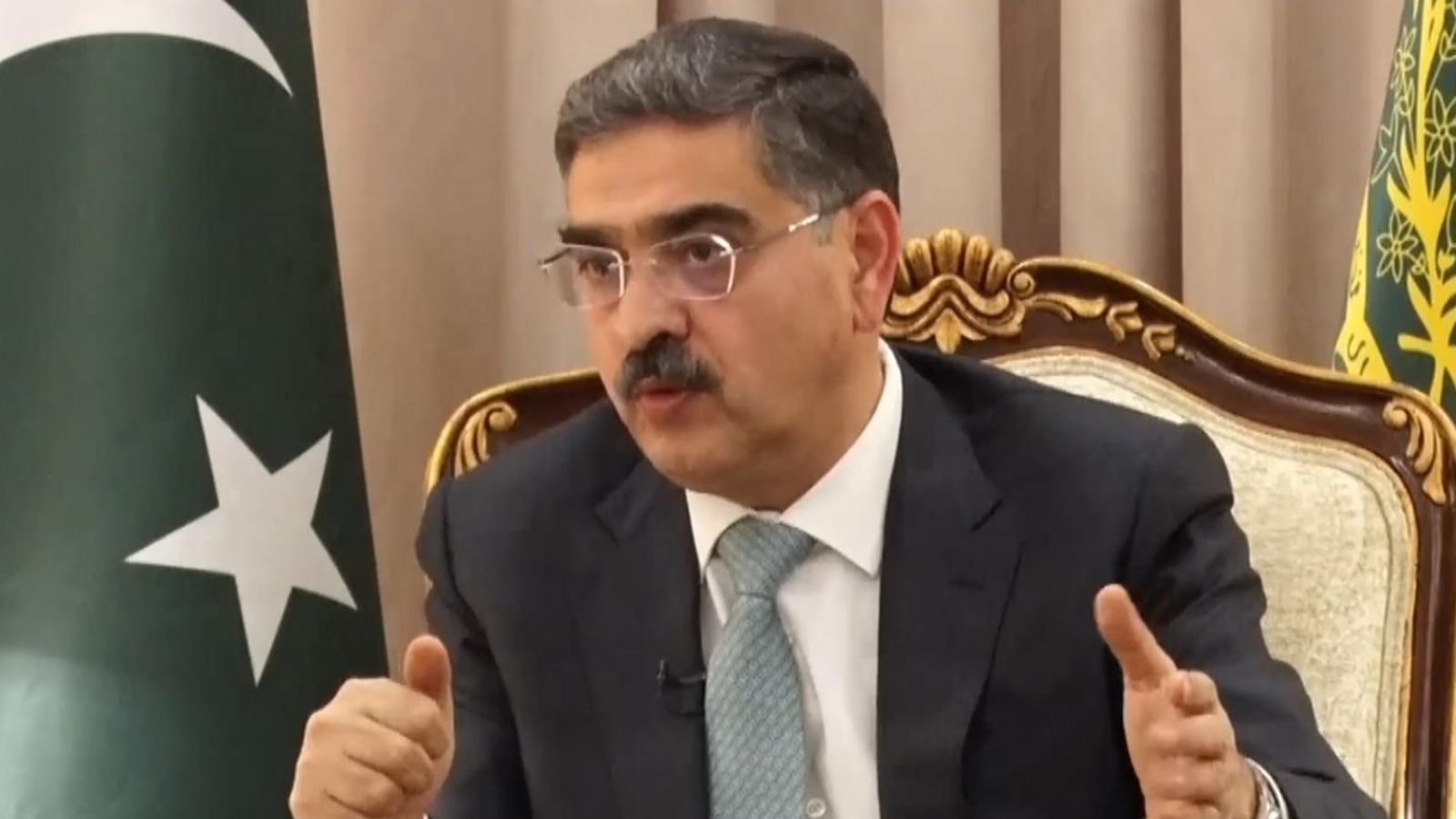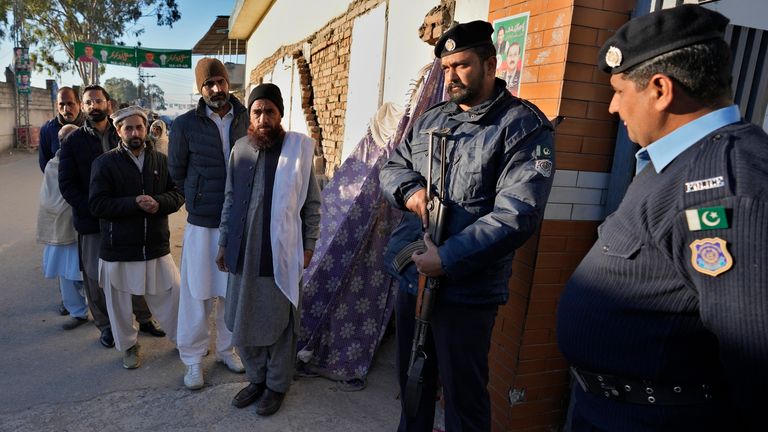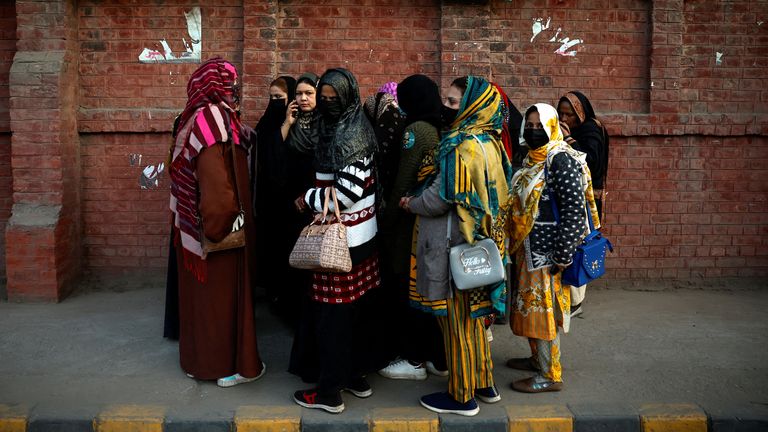The caretaker prime minister of Pakistan has told Sky News there is no attempt to “target a specific party or group” amid claims of pre-poll rigging and candidate harassment.
Speaking on the eve of the election, Anwar ul Haq Kakar did acknowledge they couldn’t totally guarantee free and fair elections.
“Absolute is a very relative term and it’s a very subjective term,” he said.
“What I can assure you is that despite all our shortcomings and flaws which there are in the system, there is no systematic pattern or institutional pattern where we are targeting a specific party or group.”
Mr Kakar said he was “surprised” at the UN High Commissioner for Human Rights expressing concern over the “pattern of harassment” against members of former Pakistani prime minister Imran Khan’s party.
Ex-cricketer-turned-politician Mr Khan, founder of the Pakistan Tehreek-e-Insaf (PTI) party and the country’s former prime minister, remains the most popular politician in the country, according to polls.
Days before the vote, he was sentenced to 10 years for leaking state secrets, 14 for corruption and seven for an “illegal” marriage. He says the charges are politically motivated.
Mr Karkar said that the “objective test” would come today and he urged others not to prejudge the election.
Speaking of the “pattern of harassment” suggestions, Mr Kakar said: “If that is the case, then I will look into it that whether it was an isolated individual case with few or a couple of individuals, or was it a broad based pattern happening to thousands of the people, millions of the people, then yes, you can come back and accuse us that this is what we have done.”
It comes as people have begun casting their ballots in the country’s highly-charged election – the build-up to which has been marred by violence and claims of fraud.
On the eve of Thursday’s election, bombs struck two political offices in southwestern Pakistan, killing at least 30 people.
Tens of thousands of police and paramilitary forces have been deployed at polling stations to ensure security.
Mobile phone services cut
Mr Kakar had said late last night that he had “no intention” of shutting down internet services.
But this morning his government did exactly that, cutting mobile phone services across the country, citing “recent incidents of terrorism in the country”.
Some analysts suggest the suspended mobile phone services will have an impact on turnout.
Many in the country have said the military is pulling the strings in this election – with Nawaz Sharif being their favoured candidate.
Mr Sharif is the 35-year-old son of former prime minister Benazir who was assassinated in 2007. The Oxford graduate has promised to double salaries and end the politics of hate.
Mr Kakar said: “This criticism of the military on influencing the political process is not something modern and new to the election of 2024.”
Explained: The problems facing Pakistan as voters go to the polls
Many also believe the military had a hand in the appointment of Mr Kakar himself
“They [the military] have a view on everything,” he said, “but they are not directly influencing the democratic process and the political process of this country”.
The next 48 hours will be crucial in determining people’s faith in that claim.


